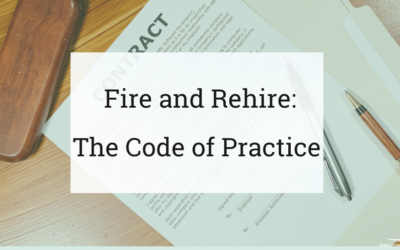Our friends at Key Accountancy based in Blythe Bridge, Stoke On Trent have collaborated with Employment Law Solutions with a guest blog explaining all about how to tackle Christmas Parties this year as an Employer. This guest blog below was written by Key Accountancy.
Key Accountancy offer services across Staffordshire, Cheshire and Shropshire. They support start-ups, small businesses, sole traders and contractors and are a local, family business with all your best interests in mind. For no-nonsense accountancy support and advice, contact the Key Accountancy Services team today on 01782 405442 or send a message.
Christmas Party Season

Despite the crazy and uncertain times that we find ourselves living in, directors and employees can still celebrate Christmas in tax-free style – even it does
Tax benefits for Employers through the Christmas period
have to be in the form of a ‘virtual’ office Christmas party.
Although there is no specific allowance for a Christmas party, or any other employer-provided social function, HMRC do allow limited tax relief against the cost of holding an ‘annual event’ for employees, providing certain conditions are met.
A staff event will qualify as a tax-free benefit if the following conditions are satisfied:
- the total cost must not exceed £150 per head, per year
- the event must be primarily for entertaining staff
- the event must be open to employees generally, or to those at a particular location, if the employer has numerous branches or departments
The exemption should therefore apply if, say, an employer meets the cost of meals delivered to each employee’s home and the staff ‘party’ is held virtually via video conferencing or similar.
The ‘cost per head’ of an event is the total cost (including VAT) of providing:
- the event, and
- any transport or accommodation incidentally provided for persons attending it (whether or not they are the employer’s employees),divided by the number of those persons.
Provided the £150 limit is not exceeded, any number of parties or events may be held during the tax year, for example, there could be three parties held at various times, each costing £50 per head.
The £150 is a limit, not an allowance – if the limit is exceeded by just £1, the whole amount must be reported to HMRC.
The £150 exemption is mirrored for Class 1 NIC purposes, (so that if the limit is not exceeded, no liability arises for the employees), but Class 1B NICs at the current rate of 13.8%, will be payable by the employer on benefits-in-kind which are subject to a PSA.
If there are two parties, for example, where the combined cost of each exceeds £150, the £150 limit is offset against the most expensive one, leaving the other one as a fully taxable benefit.
Tax deductibility
The cost of staff events is generally tax deductible for the business. Specifically, the legislation includes a let-out clause, which means that entertaining staff is not treated for tax in the same way as customer entertaining. The expenses will be shown separately in the business accounts – usually as ‘staff welfare’ costs or similar.
There is no monetary limit on the amount that an employer can spend on an annual function. If a staff party costs more than £150 per head, the cost will still be an allowable deduction, but the employees will have a liability to pay tax and National Insurance Contributions (NICs) arising on the benefit-in-kind.
The employer may agree to settle any tax charge arising on behalf of the employees. This may be done using a HMRC PAYE Settlement Agreement (PSA), which means that the benefits do not need to be taxed under PAYE, or included on the employees’ forms P11D. The employer’s tax liability under the PSA must be paid to HMRC by 19 October following the end of the tax year to which the payment relates.
The full cost of staff parties and/or events will be disallowed for tax if it is found that the entertainment of staff is in fact incidental to that of entertaining customers.
VAT-registered businesses can claim back input VAT on the costs, but this may be restricted where this includes entertaining customers.
Ensuring festive cheer
In recent months radical measures have been put in place by governments across the world to try and control the spread of coronavirus, and almost all businesses and their employees will have been affected in some way. The staff Christmas party will probably look quite different this year, but with a tweak here and there to meet with current restrictions, it should still be possible for employers to provide some festive cheer.
Key Accountancy Services
01782 405 442
[email protected]
Partner Note: ITEPA 2003, s 264; ITTOIA 2005, s 46




